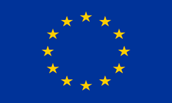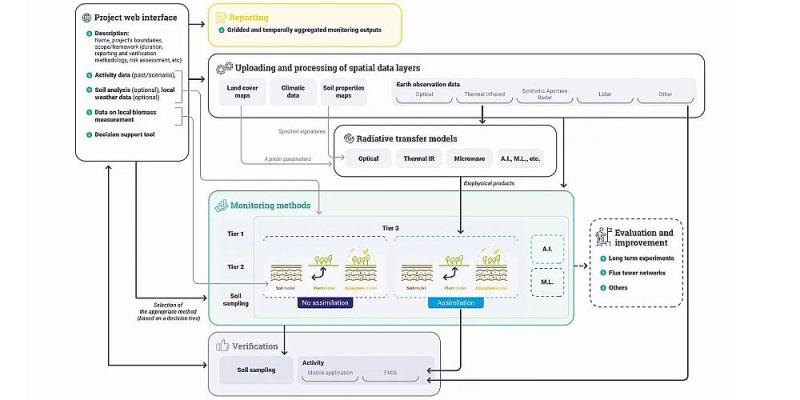New paper: Towards a modular, multi-ecosystem MRV framework for soil organic carbon stock change assessment
A new open access paper titled, "Towards a modular, multi-ecosystem Monitoring, Reporting and Verification (MRV) framework for soil organic carbon stock change assessment", with ISRIC – World Soil Information senior soil science expert Niels Batjes as main author, was recently published in Carbon Management.
Access the paper here
Increasing soil carbon stocks is one option to reach important targets such as the Paris Agreement commitments and European Union's (EU) Green Deal. International coordination of research on conserving and increasing soil carbon is essential. This will help us harness the co-benefits for climate change mitigation and adaptation, soil health and food security. In this context, ISRIC is part of the European Commission-supported ORCaSA (Operationalising International Research Consortium on Soil Carbon) project, led by INRAE (French National Research Institute for Agriculture, Food and the Environment), to establish an International Research Consortium (IRC) on Soil Carbon with a Strategic Research and Innovation Agenda (SRIA) that will not only consider agricultural soils, but also forests, pastures, wetlands and public spaces so that the chances to capture and store carbon are maximised.
Internationally, there is a wide range of application contexts (e.g., Nationally Determined Contributions (NDCs), EU’s Common Agricultural Policy (CAP), voluntary C market, insetting), ecosystems (e.g., croplands, grasslands, forests, wetlands), frameworks, methodologies and guidelines for monitoring, reporting and verification for soil organic carbon (SOC) and greenhouse gases (GHG) changes. Similarly, a wide range of tools to assess possible effects of land use/management interventions on SOC stocks and GHG emissions are applied in different parts of the world, by a diverse range of stakeholders. This diversity points at a need for harmonisation.
“Worldwide, a diverse range of guidelines and approved methodologies for MRV is being used so that results cannot readily be compared, hence the need for a generic and harmonised, scalable MRV framework”, explains Niels Batjes, senior soil science expert at ISRIC and first author of the paper.
Building on an initial review, a writing team ―consisting of researchers from ISRIC, INRAE, CIRAD (French Agricultural Research Centre for International Development) and JRC (EU Joint Research Centre)― present a generic framework for a modular, scalable MRV system. They then provide an inventory and classification of selected MRV methodologies and subsequently “score” them against a list of key characteristics; the “landscape is quite diverse”. The main challenge in developing a unified MRV system concerns the monitoring component. Based on our findings, we propose a conceptual workflow that shows how a prototype for an operational, modular multi-ecosystem MRV tool could be systematically built during the next phase of the Horizon Europe ORCaSa project. Importantly, the review also emphasised the importance of uncertainty assessment throughout the entire MRV chain.
Full citation:
Batjes NH, Ceschia E, Heuvelink GBM, Demenois J, le Maire G, Cardinael R, Arias-Navarro C and van Egmond F 2024. Towards a modular, multi-ecosystem Monitoring, Reporting and Verification (MRV) framework for soil organic carbon stock change assessment Carbon Management https://doi.org/10.1080/17583004.2024.2410812
Funding:

The ORCaSA project receives funding from the Horizon Europe research programme under Grant Agreement No. 101059863.
